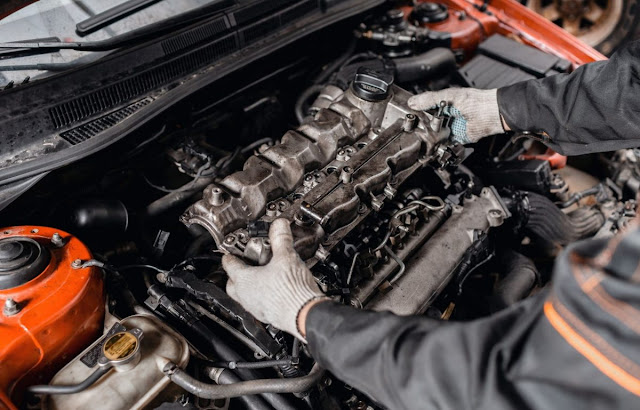What Is The Most Common Cause Of Engine Failure?

The cylinder is the beating heart of just about any vehicle. It's one component of maintaining and operating a vehicle something which you simply cannot overlook. It is rarely easy to diagnose a problem with your turbocharger, and it is even more difficult to repair. If you suspect that one’s engine is starting to struggle or, worse, having failed, take a closer look at the eight greatest common type engine problem issues listed below. Not all mechanical problems seem to be serious and cannot be handled immediately, but they all can cause engine meltdowns and, in the most extreme scenario, necessitate the purchase of a completely new engine. Remember that you don’t worry if you have a BMW car because reconditioned BMW engines can easily be found on the market.
Inadequate Viscosity
Your cylinder must receive appropriate oil in between the mechanical components. A lack of lubricating oil creates extreme friction from the inside of the turbocharger, which leads to thermal runaway and, worse, the cylinder trying to seize. Make sure your vehicle is serviced regularly, including an oil change, to keep the number of products at an adequate point.
Oil Pump Failure
The inability of a fuel pump is incredibly dangerous to the engine's lifecycle. If an air compressor fails, the engine will almost undoubtedly be deprived of necessary lubricating oil. Always use legitimate viscosity engine oil in your turbocharger, which is light enough even in high quantities thru the pump.
Debris and Oil Deposits
Elderly, dirty oil is prone to depositing and depositing debris on engine components including intake ports and plugs, to just not acknowledge combustion chambers. Your local shopping centre will wash your vehicle's lubricating oil on a constant schedule as part of their routine customer experience to prevent debris-about becoming implanted within one vehicle's bearing surfaces.
Contraction
Poor gasoline and air compression inside a petrol engine seem to be a recipe for catastrophe. The much more common causes of poor combustion engines are broken valve seals, fuel tank openings, and overplayed rubber bushings, which allow air to seep out.
Engine Coolant Leaking
A leaking cooling system is one of the simpler engine obvious flaws to diagnose. If engine coolant remains consistently low after being supplemented, it is a dead giveaway that there is a problem with the cooling system. To keep your engine able to operate at an appropriate temperature, keep the coolant free of contaminants and deposit accounts at all points of time.
Turbocharger Radiators That Are Clogged
An old cooling system that hasn't been cleaned in a long time can fill your engine's heating elements with undesired sediment and certificates of deposit. This is an additional frequent cause of engine excessive heat. If you use hard water as the coolant, you face the possibility of the cooling systems disintegrating over the moment due to hard water.
Prolonged Turbocharger Combustion
Whether you're driving together and one's engine makes a trying to knock sound, it's conceivable that there isn't enough heat inside the combustion process. Bursting into flames and high stresses combine to cause a turbocharger nuclear explosion, also known as little more than a spark knock, which could also end up causing long-term destruction to pistons, head gaskets, and engine components.
Damaged Oxygen Sensors
A factually incorrect gas sensor is hazardous not just to your turbocharger but also to the remaining portion of the vehicle. If the detector does not provide your car with accurate data regarding the amount of oxygen that continues to remain in the combustion and how much fuel is contained in the regular unleaded tank, you danger inefficient driving as well as wasting a significant amount of money over the long term.
Final Words
These used electric motors have indeed been professional manner disassembled, scrubbed, and evaluated at our automotive recycling facilities to make sure they seem to be drivable.

.jpg)

Comments
Post a Comment